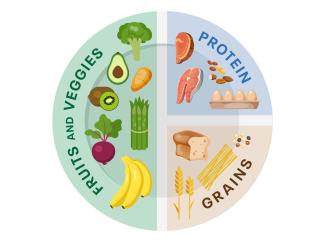
Are Eggs Healthy? A Comprehensive Overview
1. Nutritional Composition of Eggs
Eggs are a nutrient-dense food that provides a wealth of essential nutrients. A large egg, approximately 50 grams, typically contains:
- Calories: 70-80 calories
- Protein: About 6-7 grams
- Fat: Approximately 5 grams, with about 1.5 grams of saturated fat
- Cholesterol: Roughly 186 mg
- Vitamins: Eggs are rich in vitamin A, vitamin D, vitamin E, vitamin K, vitamin B12, riboflavin (B2), and folate.
- Minerals: They contain important minerals such as iron, phosphorus, selenium, and zinc.
Additionally, eggs can provide omega-3 fatty acids, especially if the hens are fed a diet rich in omega-3 sources.
2. Protein Quality
Eggs are considered one of the best sources of high-quality protein. The protein in eggs contains all nine essential amino acids in the right ratios for human needs, making it a complete protein source. This quality is essential for muscle repair, growth, and overall body function. The bioavailability of protein in eggs is also high, meaning the body can utilize it effectively.
3. Health Benefits of Eggs
- Muscle Health: The high protein content in eggs supports muscle repair and growth, making them an ideal food for athletes and those engaged in regular physical activity. Consuming eggs post-exercise can aid in recovery and muscle synthesis.
- Eye Health: Eggs are rich in antioxidants like lutein and zeaxanthin, which are concentrated in the yolk. These compounds are crucial for eye health, as they help protect against cataracts and age-related macular degeneration (AMD). Regular consumption of eggs may reduce the risk of these conditions.
- Brain Function: The presence of choline in eggs is vital for brain health. Choline plays a crucial role in the formation of acetylcholine, a neurotransmitter involved in memory and muscle control. Studies suggest that adequate choline intake may support cognitive function and reduce the risk of neurodegenerative diseases.
- Weight Management: Incorporating eggs into a balanced diet can promote satiety and help control appetite. Research indicates that consuming eggs for breakfast can lead to reduced calorie intake throughout the day, assisting in weight management and obesity prevention.
- Heart Health: Contrary to previous beliefs, moderate egg consumption does not appear to increase the risk of heart disease in healthy individuals. Eggs can raise HDL (the "good" cholesterol) levels, which is associated with a lower risk of heart disease. The overall effect of egg consumption on heart health depends on the individual's overall diet and lifestyle.
- Nutrient Absorption: The fats in eggs can enhance the absorption of fat-soluble vitamins (A, D, E, and K) from other foods. This synergy makes eggs a beneficial addition to a well-rounded diet.
4. Dietary Guidelines and Recommendations
Most health organizations agree that consuming up to seven eggs per week can be part of a healthy diet for most individuals. It is essential to consider the overall dietary pattern rather than focusing solely on individual foods. Eggs can fit well into a variety of dietary approaches, including Mediterranean, low-carb, and traditional diets.
5. Potential Risks and Considerations
- Cholesterol Concerns: One of the primary concerns regarding egg consumption has been their cholesterol content. While eggs do contain cholesterol, studies have shown that for most people, dietary cholesterol has a minimal impact on blood cholesterol levels. However, individuals with specific health conditions, such as diabetes or familial hypercholesterolemia, should consult healthcare providers for personalized advice.
- Food Safety: Raw or undercooked eggs can pose a risk of Salmonella infection. To minimize this risk, it is advisable to cook eggs thoroughly. Those with weakened immune systems, pregnant women, and young children should exercise caution.
- Allergies: Egg allergies are common, particularly in children. Symptoms can range from mild to severe. Most children outgrow egg allergies, but adults may experience lifelong allergies.
6. Cooking and Preparation Methods
The way eggs are prepared can influence their health benefits. Cooking methods such as boiling, poaching, or scrambling with minimal added fats are healthier options. Fried eggs or dishes high in saturated fats can diminish some health benefits. Incorporating vegetables, whole grains, or lean proteins with eggs can enhance their nutritional profile.
In summary, eggs are a highly nutritious food that can offer numerous health benefits when consumed as part of a balanced diet. They provide high-quality protein, essential vitamins and minerals, and beneficial compounds that support eye and brain health. While moderation is key, most individuals can safely enjoy eggs without adverse health effects. As with any food, it is essential to consider overall dietary habits and consult with healthcare professionals for personalized dietary recommendations.
Whites Against Yolks: A Detailed Comparison
1. Nutritional Composition
- Egg Whites:
- Primarily composed of water (about 90%) and protein (approximately 10%).
- Contains roughly 3.6 grams of protein per large egg.
- Low in calories, with about 17 calories per egg white.
- Virtually fat-free, containing less than 0.1 grams of fat.
- Contains no cholesterol.
- Egg Yolks:
- Richer in nutrients, with about 2.7 grams of protein per yolk.
- Contains approximately 55 calories per yolk.
- Contains about 4.5 grams of fat, of which around 1.6 grams are saturated.
- A significant source of cholesterol, with about 186 mg per yolk.
- Provides essential vitamins and minerals, including vitamin A, vitamin D, vitamin E, vitamin K, B vitamins (especially B12 and folate), iron, phosphorus, selenium, and choline.
2. Health Benefits
- Egg Whites:
- High protein content makes them an excellent choice for muscle building and repair. They provide essential amino acids necessary for muscle synthesis without the added calories and fat found in yolks.
- Suitable for weight management due to their low calorie and fat content, promoting satiety without excessive caloric intake.
- Useful for individuals with specific dietary restrictions, such as those needing to limit fat or cholesterol intake due to health concerns.
- Egg Yolks:
- Packed with essential nutrients that support overall health. For instance, the presence of choline in yolks is crucial for brain health and cognitive function.
- Contains antioxidants such as lutein and zeaxanthin, beneficial for eye health, helping to protect against age-related macular degeneration and cataracts.
- Provides healthy fats that can support cardiovascular health when consumed in moderation, particularly as part of a balanced diet.
3. Culinary Uses
- Egg Whites:
- Commonly used in recipes that require leavening and structure, such as meringues, soufflés, and angel food cakes.
- Frequently featured in protein shakes and low-calorie dishes for those aiming to reduce fat intake.
- Can be whipped to create a stable foam, adding lightness to various dishes.
- Egg Yolks:
- Impart richness and creaminess to dishes, making them ideal for sauces (like hollandaise), custards, and desserts.
- Often used to emulsify mixtures, helping to combine oil and water-based ingredients in salad dressings and sauces.
- The flavor and color added by yolks enhance many culinary creations, providing depth and a characteristic yellow hue.
4. Dietary Considerations
- Egg Whites:
- While egg whites are low in calories and fat, they lack some of the nutrients found in yolks, such as vitamins A, D, and E, and essential fatty acids.
- Consuming only egg whites may lead to nutrient deficiencies if not balanced with other food sources that provide these nutrients.
- Some individuals may choose to consume egg whites for their lower cholesterol content, particularly if they have specific health concerns related to cholesterol intake.
- Egg Yolks:
- Despite their cholesterol content, recent research suggests that moderate yolk consumption does not significantly impact cholesterol levels in most healthy individuals.
- Yolks should be consumed as part of a balanced diet that includes a variety of fruits, vegetables, whole grains, and healthy fats to ensure a comprehensive nutrient intake.
- The presence of healthy fats in yolks can promote satiety and nutrient absorption, making them a valuable part of a meal.
5. Summary of Considerations
- Balanced Diet: For optimal health, a balanced intake of both egg whites and yolks may be the best approach. This allows individuals to benefit from the high protein content of whites while also gaining the vitamins, minerals, and healthy fats found in yolks.
- Individual Goals: The choice between egg whites and yolks often depends on personal health goals, dietary preferences, and nutritional needs. Athletes and bodybuilders may prioritize egg whites for their protein content, while those seeking overall health benefits may incorporate whole eggs into their diet.
- Cooking Methods: How eggs are prepared can also influence their health benefits. For instance, poaching or boiling eggs retains more nutrients compared to frying, which may add unhealthy fats.
In the debate between egg whites and yolks, both components offer unique nutritional benefits. While egg whites provide a low-calorie, high-protein option, yolks deliver a wealth of essential nutrients and healthy fats. The healthiest approach often involves a combination of both, tailored to individual dietary needs and health goals.
Good Benefits of Eggs
1. Nutritional Value
Eggs are incredibly nutrient-dense, providing a wide range of essential vitamins and minerals in a relatively low-calorie package. A large egg typically contains about 70-80 calories, 6-7 grams of high-quality protein, and a balance of healthy fats. They are rich in vitamins such as vitamin A, B vitamins (including B12 and riboflavin), vitamin D, and vitamin E. Additionally, eggs provide essential minerals like selenium, phosphorus, and iron, making them a powerhouse of nutrition.
2. High-Quality Protein Source
Eggs are an excellent source of complete protein, containing all nine essential amino acids that the body cannot produce on its own. The protein in eggs is highly bioavailable, meaning that the body can absorb and utilize it effectively. This makes eggs a perfect food for muscle repair and growth, particularly beneficial for athletes and those engaging in strength training.
3. Heart Health
Recent studies have shown that moderate egg consumption (about 6-7 eggs per week) does not increase the risk of heart disease in healthy individuals. In fact, eggs can raise levels of HDL (high-density lipoprotein), often referred to as "good" cholesterol. This increase in HDL cholesterol is associated with a reduced risk of heart disease. Moreover, the phospholipids and omega-3 fatty acids found in eggs can support cardiovascular health when included as part of a balanced diet.
4. Eye Health
Eggs are a rich source of carotenoids, particularly lutein and zeaxanthin, which are vital for eye health. These antioxidants are known to reduce the risk of cataracts and age-related macular degeneration (AMD). By filtering harmful blue light and protecting retinal cells, these compounds contribute significantly to overall eye health. Regular consumption of eggs can thus play a protective role against common eye disorders.
5. Brain Function
Choline, a nutrient found abundantly in egg yolks, is crucial for brain health. It is a precursor for acetylcholine, a neurotransmitter that is involved in memory, mood, and muscle control. Adequate choline intake has been linked to improved cognitive function and may play a role in preventing neurodegenerative diseases such as Alzheimer’s. Incorporating eggs into the diet can therefore support brain development and function, particularly in pregnant women and children.
6. Weight Management
Including eggs in the diet can aid in weight management due to their high protein content, which promotes satiety and reduces hunger. Research indicates that eating eggs for breakfast can lead to greater feelings of fullness, subsequently decreasing caloric intake throughout the day. This makes eggs a beneficial food choice for those looking to control their weight or adhere to a healthy eating plan.
7. Bone Health
Eggs contain vitamin D, which is essential for calcium absorption and bone health. Adequate vitamin D levels help maintain bone density and prevent osteoporosis. Additionally, the phosphorus found in eggs plays a role in bone structure and health. Therefore, incorporating eggs into a balanced diet can support long-term skeletal health.
8. Versatile and Convenient
Eggs are one of the most versatile foods available. They can be prepared in numerous ways, including boiling, poaching, scrambling, frying, and baking. This versatility allows for easy incorporation into various meals, making it simple to enhance the nutritional quality of breakfast, lunch, dinner, or snacks. They are also quick to prepare, making them a convenient option for busy lifestyles.
9. Affordability
Eggs are a cost-effective source of high-quality protein and essential nutrients. Compared to other protein sources, such as meat or fish, eggs are often more affordable, making them accessible to a wide range of consumers. This affordability, combined with their nutritional benefits, makes eggs an excellent choice for health-conscious individuals on a budget.
10. Support for Immune Function
The vitamins and minerals found in eggs contribute to a robust immune system. For instance, vitamin A is crucial for maintaining healthy mucosal surfaces, while selenium plays a role in the production of antibodies. Regular consumption of eggs can thus help bolster the immune system, supporting overall health and resilience against infections.
11. Skin and Hair Health
Eggs are rich in nutrients that promote healthy skin and hair. Biotin, a B vitamin found in egg yolks, is known for its role in maintaining healthy hair, skin, and nails. The protein in eggs supports the structure of hair and skin, promoting elasticity and strength. Additionally, the antioxidants in eggs can help protect skin cells from oxidative damage, contributing to a youthful appearance.
12. Supports Healthy Pregnancy
Eggs are an excellent food choice for pregnant women due to their high choline content, which is vital for fetal brain development. They also provide essential nutrients that support both maternal and fetal health. The protein and vitamins in eggs can help ensure that both the mother and baby receive the nutrients necessary for healthy development.
In summary, eggs are a nutritious and versatile food that provides numerous health benefits. From supporting muscle health and brain function to promoting eye health and weight management, incorporating eggs into a balanced diet can enhance overall health and well-being.






